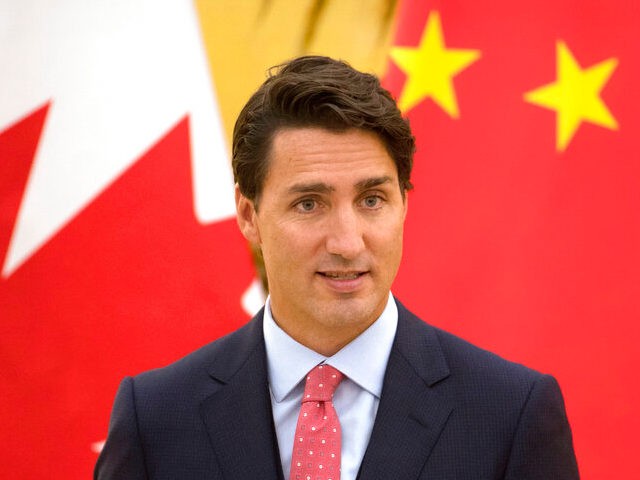Canada is preparing for a fresh round of elections next month by empowering a task force to prioritize fighting foreign interference and ordering its spy service to promptly disclose threats to any candidates — moves Ottawa deems necessary as evidence mounts of expansive Chinese government operations to influence Canadian politics.
Canada’s leftist government branded a Chinese diplomat, Toronto-based Zhao Wei, persona non grata, last week, expelling him from the country in response to evidence the Canadian Security Intelligence Service (CSIS) had compiled that Zhao had worked — at the behest of the Chinese government — to identify potential relatives of a member of Parliament, Michael Chong.
Chong resided in China and could be targeted for intimidation as a vocal critic of the communist regime.
In Parliament, Chong led an effort to condemn China’s ongoing genocide against the Uyghur people and other non-Han ethnic groups in occupied East Turkistan. A CSIS report reportedly detailed that Zhao helped the Chinese regime target his family to “make an example of this MP and deter others from taking anti-PRC [People’s Republic of China] positions.”
Reports accusing Zhao of such tactics followed years of concerns regarding suspicious donations from Chinese businessmen to left-wing political figures and institutions such as the Pierre Elliot Trudeau Foundation, founded in honor of the former prime minister and father of the current prime minister.
Chong testified Tuesday on his experiences as a target of Chinese persecution to the Parliamentary standing committee on procedure and house affairs, accusing the government of leftist Prime Minister Justin Trudeau of not taking sufficient action to protect Canadian citizens from Chinese transnational repression.
“Besides my case, it’s hard to quantify how many Canadians have been suffering for years, being targeted by authoritarian states, and for too long the Canadian government hasn’t taken action to protect them,” Chong said, according to the Toronto Star.
Chong was particularly critical of the relationship between CSIS and Canadian law enforcement agencies, a relationship which makes it difficult to communicate potential threats properly, letting cases like his fall through the cracks. Chong noted that Trudeau and his public safety minister, Marco Mendicino, claimed to have found out about the CSIS reports from a media leak rather than through formal channels.
“This likely wouldn’t have happened if Canada followed the example of peer jurisdictions that have a long history of briefing legislators on highly sensitive national security and intelligence issues,” Chong noted.
Following Chong’s testimony, Mendicino announced a new policy on Tuesday, formally asking the CSIS to prioritize foreign threats against lawmakers and their families and communicate them promptly to the highest levels of government. Mendicino’s directive, CTV reported, “says CSIS must also tell the public safety minister about all instances of threats against Parliament or parliamentarians and explain how it will respond.”
The Trudeau administration also announced on Tuesday that it would empower a Security and Intelligence Threats Task Force [SITE] to specifically investigate any evidence of potential foreign interference in upcoming byelections scheduled for June 19.
“The task force, known as SITE, is expected to provide regular assessments of foreign interference threats to a committee of deputy ministers, who will brief members of cabinet if needed,” the Canadian Press reported. “SITE is also tasked with preparing two reports — one classified, and one unclassified — about any attempts at interfering in the byelections.”
Canada is one of many Western nations where the NGO Safeguard Defenders revealed in a report last year that the Chinese Communist Party established illegal police stations to persecute anti-communist dissidents abroad.
Mendicino said in an interview on Sunday that:
[Canadian law enforcement had] taken concrete action to disrupt any foreign interference in relationship to those so-called police stations, and that if new police stations are popping up and so on, that they will continue to take decisive action going forward.
He left the door open to the possibility that Canadian authorities would discover new illegal Chinese police stations on Canadian soil in the future.
According to the anti-communist newspaper Epoch Times, citing Safeguard Defenders on Tuesday, Toronto, British Colombia, and Montreal are all believed to be housing illicit Chinese transnational repression stations.
The Chinese government responded acrimoniously to Mendicino’s comments and accused Canada of allowing itself to be colonized by the United States.
“The US is a source of spreading virus of discrediting China [sic],” the Global Times, a Chinese government propaganda newspaper, proclaimed Monday. “Canada, sharing the longest international border in the world with the US, is severely infected. It’s a virus, which does no good to Canada’s long-term healthy development.”
The outlet continued:
Canada now shows its obedience. However, when it makes audacious slander against China based solely on vague information, it is making a fool of itself – pretending to be serious in dealing with a ‘national security threat’ yet with nothing more than junky information at hand.
The NYPD made the first arrests in the free world against the administrators of an alleged illegal Chinese police station abroad in April. New York prosecutors accused two Chinese agents of “operating a police station in the middle of New York City” meant to intimidate anti-communist Chinese dissidents into silence, force them to return to repression at home, or sabotage their public advocacy efforts.

COMMENTS
Please let us know if you're having issues with commenting.